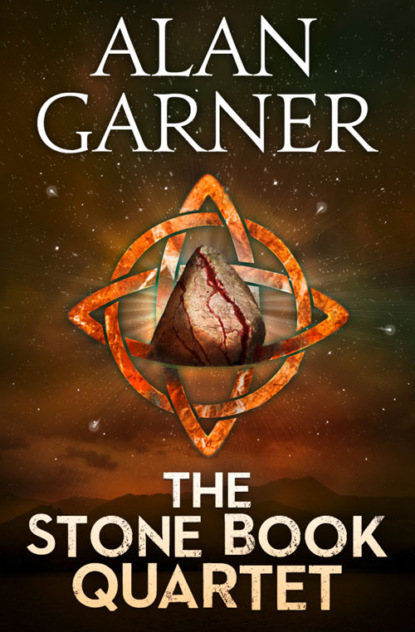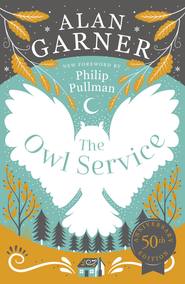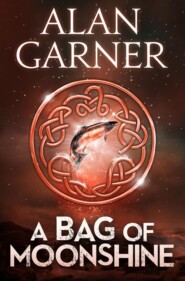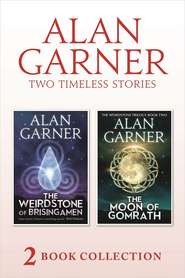По всем вопросам обращайтесь на: info@litportal.ru
(©) 2003-2025.
✖
The Stone Book Quartet
Настройки чтения
Размер шрифта
Высота строк
Поля
‘But I’m not at the top,’ said Mary.
The steeple cap was a swelling to take the socket for the spike of the golden cockerel. Mary could touch the spike. Above her the smooth belly raced the clouds.
‘You’re not frit?’
‘Not now,’ said Mary. ‘It’s grand.’
Father picked her up. ‘You’re really not frit? Nobody’s been that high. It was reared from the platform.’
‘Not if you help me,’ said Mary.
‘Right,’ said Father. ‘He could do with a testing. Let’s see if he runs true.’
Father lifted Mary in his arms, thick with work from wrist to elbow. For a moment again the steeple wasn’t safe on the earth when she felt the slippery gold of the weathercock bulging over her, but she kicked her leg across its back, and held the neck.
‘Get your balance,’ said Father.
‘I’ve got it,’ said Mary.
The swelling sides were like a donkey, and behind her the tail was stiff and high. Father’s head was at her feet, and he could reach her.
‘I’m set,’ she said.
Father’s face was bright and his beard danced. He took off his cap and swept it in a circle and gave the cry of the summer fields.
‘Who-whoop! Wo-whoop! Wo-o-o-o!’
Mary laughed. The wind blew on the spire and made the weathercock seem alive. The feathers of its tail were a marvel.
Father twisted the spike with his hands against the wind, and the spike moved in its greased socket, shaking a bit, juddering, but firm. To Mary the weathercock was waking. The world turned. Her bonnet fell off and hung by its ribbon, and the wind filled her hair.
‘Faster! Faster!’ she shouted. ‘I’m not frit!’ She banged her heels on the golden sides, and the weathercock boomed.
‘Who-whoop! Wo-whoop! Wo-o-o-o!’ cried Father. The high note of his voice crossed parishes and townships. Her hair and her bonnet flew, and she felt no spire, but only the brilliant gold of the bird spinning the air.
Father swung the tail as it passed him. ‘Who-whoop! Wo-whoop! Wo-o-o-o! There’s me tip-top pickle of the corn!’
Mary could see all of Chorley, the railway and the new houses. She could have seen home but the Wood Hill swelled and folded into Glaze Hill between. She could see the cottage at the edge of Lifeless Moss, and the green of the Moss, and as she spun she could see Lord Stanley’s, and Stockport and Wales, and Beeston and High Billinge and Delamere, and all to the hills and Manchester. The golden twisting spark with the girl on top, and everywhere across the plain were churches.
‘Churches! I can see churches!’
And all the weathercocks turned in the wind.
Father let the spike stop, and lifted her down.
‘There,’ he said. ‘You’ll remember this day, my girl. For the rest of your life.’
‘I already have,’ said Mary.
Father ate his baggin. Mary walked round the platform. She looked at the new vicarage and the new school by the new church.
‘Are you wishing?’ said Father.
‘A bit,’ said Mary. ‘I’m wishing I’d went.’
‘It’d be fourpence a week, and all the time you’d have lost.’
‘I could have read,’ said Mary. ‘You can read.’
She sat with her back against the steeple in its narrow shade. Glaze Hill was between her boots. ‘Have you asked if Lord Stanley’ll set me on?’
‘Lord Stanley doesn’t like his maids to read,’ said Father.
‘But have you?’
‘Wait a year.’
‘I’m fretted with stone picking,’ said Mary. ‘I want to live in a grand house, and look after every kind of beautiful thing you can think of: old things: brass.’
‘By God, you’ll find stone picking’s easier!’ The onion dropped off Father’s knife and thumb and floated down to the lawns of the church. It had so far to fall that there was time for it to wander in the air.
‘We’d best fetch that,’ said Father, ‘The vicar won’t have us untidy.’
He put Mary on the ladder and climbed outside her. Just as the sky and the steeple were inside the ladder, Mary was inside Father’s long arms that pushed him out from the rungs. He didn’t help her, but she felt free and safe and climbed as if there was no sky, no stone, no height.
She ran across the lawn and picked up the onion. Bits of it had smashed off and she nibbled them.
She stood with Father and looked up. The spire still toppled under the clouds.
‘She’ll do,’ said Father, and slapped the stone. ‘Yet she’ll never do.’
‘Why?’ said Mary.
‘She’s no church, and she’ll not be. You want a few dead uns against the wall for it to be a church.’
‘They’ll come.’
‘Not here,’ said Father. ‘There’s to be no burial ground. Just grass. And without you’ve some dead uns, it’s more like Chapel than Church. Empty.’
He ate his onion.
Mary went back to work. She looked at Saint Philip’s when she got to Lifeless Moss. Father was nearly at the top again. His arms were straight. He climbed balanced out from the stone.
She dipped a panshon of water in the spring and took some up to Mother. Mother was sleeping, but her hair was flat with sweat.
Old William was sweating at his loom. It was all clack. He had to watch the threads, and he couldn’t look to talk.
Mary worked till the sun was cool, then she carried her stones home and made the tea. She washed little Esther and put her to bed, and gave Mother her tea. Father came home.











